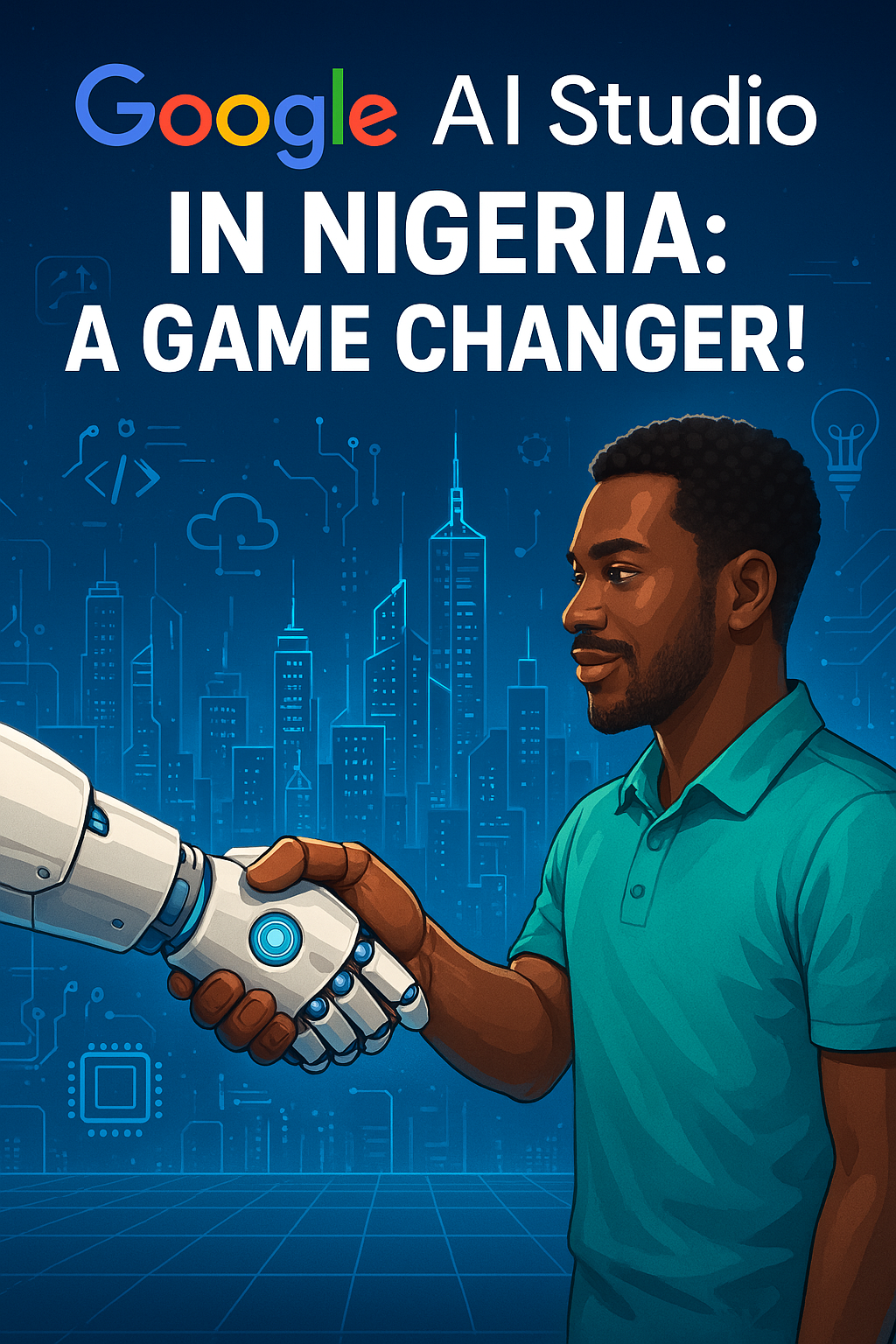In a digital world that’s evolving at breakneck speed, staying ahead isn’t just an advantage—it’s a necessity. The recent second iteration of Google’s Kaggle Generative AI Intensive Course has caught the attention of developers worldwide, with over 250,000 registrations (a staggering jump from 150,000 last year). But what does this GenAI revolution mean for us in Nigeria’s burgeoning tech ecosystem? Let’s dive in.
The GenAI Revolution Is Here—And Nigeria Can Lead It
The excitement around Generative AI isn’t just Silicon Valley hype. It represents a fundamental shift in how we build technology, solve problems, and create value. As Jeff Dean, Google’s AI chief, puts it, these are powerful “building blocks” enabling everything from utility applications to entertainment platforms and information transformation tools.
For Nigerian developers, this isn’t just another tech trend to follow—it’s an opportunity to leapfrog into the future of technology. With our unique challenges and innovative spirit, we’re perfectly positioned to apply these tools in ways that address local needs while creating globally relevant solutions.https://creativetechafrica.blog/groundbreaking-a-i-advancements-for-young-african-innovators/
Breaking Down Google’s GenAI Toolkit
Google has developed two main platforms that Nigerian developers should get familiar with:
AI Studio: Your Gateway to GenAI
Think of AI Studio (ai.google.dev) as your experimental playground. It’s designed for:
- Quick prototyping of your ideas
- Testing capabilities before full development
- Generating code exports in Python, JavaScript, and other languageshttps://www.youtube.com/live/WpIfAeCIFc0?si=b-LazeRZbVlIBqTc
The beauty of AI Studio lies in its simplicity. You don’t need extensive machine learning experience to start experimenting with Gemini models. For Nigerian developers operating with limited resources, this democratized access is game-changing.
Vertex AI: Taking Your Projects to Production
When you’re ready to scale, Vertex AI offers:
- Comprehensive enterprise-grade features
- MLOps capabilities for managing your AI workflows
- Search Grounding for more factual responses
- Model Garden for accessing various AI models (not just Google’s)
The transition between these platforms is becoming seamless, with Google unifying SDKs so your code can move from experimentation to production without major rewrites—saving precious time and resources.
The Evolution of Prompt Engineering: What Nigerian Developers Need to Know
Remember when working with AI models felt like speaking a foreign language? Early models required techniques like Few-shot learning and Chain of Thought prompting, often discovered through trial and error.
Today’s models are increasingly instruction-tuned, making interactions more intuitive. For developers in Nigeria’s fast-paced tech scene, this means less time wrestling with perfect prompts and more time building valuable applications.
Key parameters you should understand:
- Temperature: Controls randomness (higher = more creative, lower = more factual)
- Top-P/Top-K: Further constraints on response variety
- Max Output Tokens: Sets hard limits on response length
Tackling AI’s Biggest Challenge: Hallucinations
When building AI applications for Nigerian users—whether in healthcare, education, or financial services—factual accuracy is non-negotiable. Google is focusing heavily on reducing hallucinations through:
- Grounding: Connecting models to external sources like documents or search results
- Explicit Prompting: Clearly stating factuality requirements
- Verification: Using LLMs to check generated answers
- Parameter Tuning: Lowering temperature often improves factuality
For Nigerian developers building critical applications, these techniques can help ensure your AI solutions provide reliable information rather than potentially harmful misinformation.
Evaluating Your AI Solutions: The Nigerian Context
How do you know if your AI application is truly serving Nigerian users effectively? Evaluation is key:
- LLMs as Judges: Using models to evaluate other models’ outputs
- Point-wise Evaluation: Scoring responses against specific criteria
- Pairwise Comparison: Determining which of two responses is better
When designing evaluation criteria, consider Nigerian contexts, languages, and cultural nuances. An AI solution that works perfectly in another market may miss important local considerations.
Optimizing for Nigerian Realities: Efficiency Matters
In a country where internet access can be inconsistent and expensive, model efficiency isn’t just nice to have—it’s essential. Google is advancing techniques like:
- Quantization and distillation: Making models smaller without sacrificing quality
- Prompt caching: Reducing redundant processing
- Batch APIs: Processing multiple requests efficiently
These optimizations help create AI applications that work well even with connectivity challenges and on more affordable devices—critical for widespread adoption in Nigeria.
What’s Next? Opportunities for Nigerian Developers
The next 1-3 years promise radical changes in how software is developed and used. For Nigerian tech talents, opportunities abound in:
- Building localized AI applications: Creating solutions that understand Nigerian languages, contexts, and challenges
- Developing AI tools for sectors like agriculture, healthcare, and education: Areas where Nigeria faces unique challenges that AI can help address
- Pioneering AI research from an African perspective: Contributing to the global AI landscape with uniquely African insights and approaches
Getting Started: Your Nigerian GenAI Journey
Ready to dive in? Here’s how to begin:
- Start with AI Studio: Experiment with Gemini models through the simple interface
- Practice prompt engineering: Learn to communicate effectively with AI models
- Build small projects: Apply what you’ve learned to solve local problems
- Connect with the community: Join Nigerian tech communities exploring GenAI
- Scale gradually: As you gain confidence, move to Vertex AI for more complex projects
Conclusion: Nigeria’s GenAI Moment
The Generative AI revolution isn’t happening without us—it’s happening with us. With tools becoming more accessible and models more powerful, Nigerian developers have an unprecedented opportunity to shape the future of technology in Africa and beyond.
The question isn’t whether GenAI will transform Nigerian tech, but how Nigerian tech talents will transform GenAI to meet our unique needs and challenges. The future is generative, and it speaks with a Nigerian accent too.
Are you a Nigerian developer exploring GenAI? Share your projects and experiences in the comments below!


